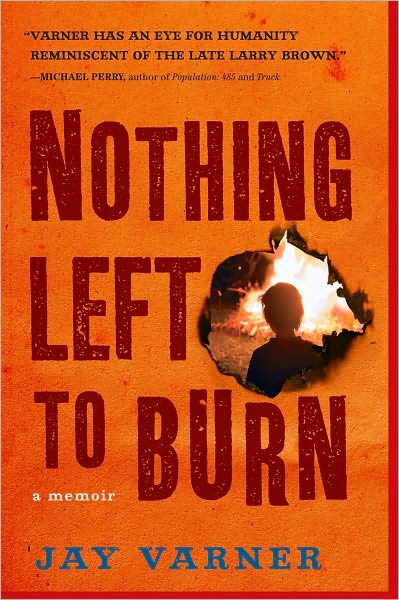Algonquin Books 2010
 When my brother died, I was six years old. I had come down the stairs that morning to watch a television program on Nickelodeon, Today’s Special. My mother informed me that my twenty-one-year-old brother had died the night before. I am sure I gave my mother a hug. The death of my brother was a tremendous relief.
When my brother died, I was six years old. I had come down the stairs that morning to watch a television program on Nickelodeon, Today’s Special. My mother informed me that my twenty-one-year-old brother had died the night before. I am sure I gave my mother a hug. The death of my brother was a tremendous relief.
The reasons were simple: he was the one who started a smoke-filled fire in his bedroom; his friends, always coming and going, had grins dangerous enough to set off car alarms; and most important, he was the reason my father worked seventy hours a week—preferring the demands of the outside world to the unrelenting tension at home. Even at six, that my brother was murdered during a drug deal gone wrong was no surprise.
Reading Jay Varner’s impressive first book, Nothing Left to Burn, returned me to the struggles of a child who must confront potential danger within his family. The memoir begins with Varner, five years old, watching out the window of his family’s trailer as his paternal grandfather, Lucky, a serial arsonist, burns a truckload of trash in their backyard: “He cocked his head like a dog, listening intently, as though the crackle and pop of the flames sounded like a melody to him.”
While realizing his grandfather’s threat of violence through fire, Varner also observes the demands of his father’s work as volunteer fire chief. This ironic tension, a grandfather addicted to igniting fires and a father dedicated to extinguishing them, endangers the family’s stability as Varner’s father refuses to cut back on the long hours his job demands—indeed, the work of Varner’s father as fire chief stands as the memoir’s central tension. Later, when his father dies of cancer while Varner is still a boy, an even greater void opens in his life.
Resting in the background of these events is an account Varner gives of returning to his small hometown in central Pennsylvania after graduating from college to work for the local newspaper. Just as Varner’s main narrative illustrates a family’s inability to achieve a sustaining and healthy bond, so does his presentation of McVeytown, with its growing epidemic of drug use, reflect the failures of the community he grew up in.
At the heart of this memoir is an important secret. The shame of his grandfather leads Varner’s parents to deny their son a complete explanation of his father’s relationship with Lucky. Only at the end of the book does Varner receive the necessary information to begin to appreciate the emotional damage Lucky’s parenting had inflicted upon his father and what urged his father to keep fighting fires, even as cancer made breathing a burden.
It took me several years to write about my brother and how his behavior drove my family apart, and I am impressed with the courage Varner demonstrates in addressing such painful accounts. When attending his grandfather’s funeral as an adult, Varner admits to still not being able to forgive the man who made him feel threatened as a boy and compelled his father to spend so much time away. This recognition strikes me as a tremendous risk, one that could possibly challenge a reader’s sympathy, but it also reflects the book’s success. What makes Nothing Left to Burn a commendable book begins with Varner’s honest voice.
—
Steve Coughlin lives on a horse farm in southeast Ohio. His work has recently appeared in the Gettysburg Review, New Ohio Review, Michigan Quarterly Review, Green Mountains Review, and Slate.com.
